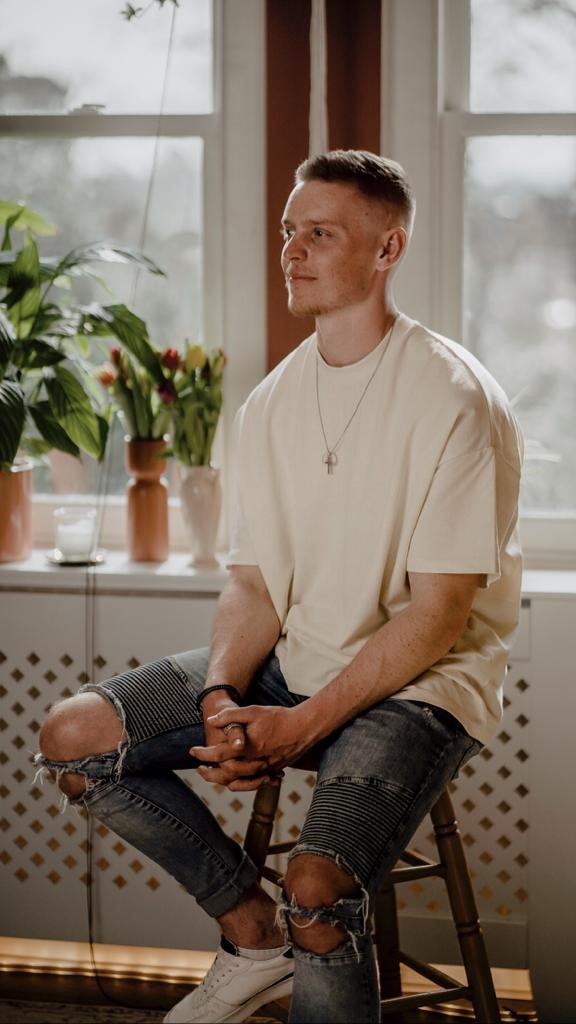Astrocytoma Grade 2
On the 9th April 2021 I was a young, healthy, regular 24 year-old. Spending time with friends and family, competing in many different sports and working hard in his career to achieve his dreams. I graduated from Bath University having read Biochemistry . On 10th April 2021 I was a brain tumour patient who was recovering in the intensive care ward after a tonic clonic seizure unable to see a future where I could ever get my life back. I was diagnosed with a grade 2 IDH mutant Astrocytoma. There is currently no cure. They mainly affect children and young people like me.
On 12th July 2021 I underwent a 14 hour awake craniotomy, which left me paralysed down one side of my body and unable speak. Over the course of many months, hours of physio and speech therapy I learnt to become myself again. However, truth be told I’ll never be back to myself. Yes, physically I am near enough back to where I once was, but mentally I was million miles away.
No young 24 year old should ever have to think about their own mortality, and yet here I was now faced with an incurable disease that will be with me for the rest of my life. I remember explaining to a family member, ‘basically what they are saying is that you are fine now, but in the no- too-distant future you’re going to be really ill.’ How can one get their head around that? I’m meant to be in my mid 20s, doing everything everyone else is doing and yet it’s hard sometimes to face leaving the house with the fear of what is going on inside my head. The hardest part is pretending you are fine, when friends see you doing well and you mix in and go along with it, but inside you can’t tell them how jealous you are of them for living a normal life?
So what does my life look like going forward? I guess no one really knows what’s to come but for most people that’s exciting. A new career somewhere, a new house, moving to another country, start of a family. My reality is going from 3 month scan to 3 month scans, with the knowledge at some point I’ll spend 6 weeks strapped to a radiotherapy machine and a year on chemotherapy, not being able to work, see friends as and when I want and have my life dictated by treatment.
The watch and waiting is the hardest part. Like I’ve got a bomb in my head that could go off at any time. Not a day goes past where I don’t think about what might be happening inside my brain. What was that funny feeling, why have I got pins and needles, why can’t I remember that word? It’s the anxiety itself which is the most draining. Yes I feel weaker and more tired having undergone such a major surgery, but the anxiety and depression are the hardest to fight.
Chemotherapy and radiotherapy. That’s what the future holds for me. After battling through an awake brain surgery, months of rehabilitation, waking up every day battling this disease in my own head, putting a smile on my face for those around me, just to have to go through another year of turmoil and appointments only to be left with potential long term cognitive issues and even further away from the 24 year old I know on the 9th April 2021. This is not a cure.
I am luckier than some , as in May last year I was accepted on the ‘named patient programme ‘ for a drug, Vorasidenib. This drug is the first of its sort available and it works by inhibiting the mutated gene that drives the cells to proliferate.
I have been attending the Marsden, for the first two months every fortnight and now monthly, for monitoring. I am truly grateful to all for the help and support offered to get the programme open, it is hoped the drug will halt or at least slow down the progression of my tumour. It will not last forever and it is not a cure. The only option thereafter would be radio/chemotherapy, again these treatments are not a cure, and these tumours return and transform to faster growing tumours. There is no other treatment ‘waiting in the wings’, because funding for research into these type of tumours has been neglected for many years, they are infamously known as ‘the underfunded of the underfunded’. If they can be stopped from ‘transforming ‘ to higher grade tumours, they may become a chronic but manageable condition.
Life is still very hard, but knowing I am actually receiving some treatment I have felt much more hopeful. My anxiety has improved as have my seizures. Given my age, 28 years, I feel I have a lot to give and a lot of living to do. I wish to try to avoid radio/chemo for as long as I possibly can – I have read a lot about the effects on the brain and utter disruption to day-to-day life. Life will never be the same for me but since my diagnosis this is the most ‘normal’ I have felt.

